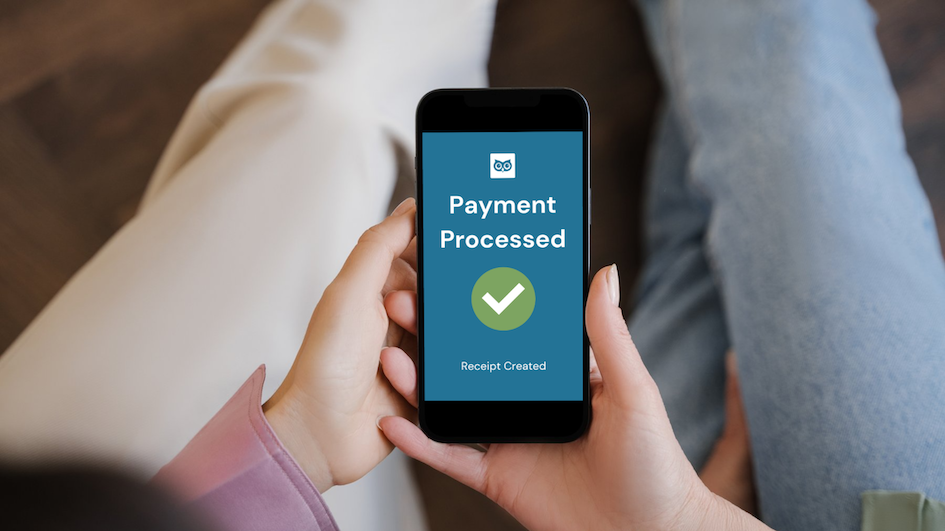Artificial Intelligence (AI) is transforming industries worldwide, and mental health practice management is no exception. AI offers numerous benefits, from enhancing client outcomes to improving operational efficiency. As a mental health professional, understanding and leveraging AI can significantly transform your practice, leading to better client care and streamlined operations. Imagine having a virtual assistant that not only handles your admin tasks but also helps in diagnosing and treating your clients.
How AI Can Work For You and Your Practice
Artificial Intelligence refers to the simulation of human intelligence in machines that are programmed to think and learn like humans. Key AI technologies relevant to mental health include machine learning, natural language processing, and predictive analytics. These technologies can analyse vast amounts of data, recognize patterns, and make data-driven predictions, providing valuable insights for mental health professionals.
- Machine Learning: Think of machine learning as a tool that gets smarter with experience—just like we do. In mental health, it can analyse your clients’ data, spotting subtle patterns that could reveal underlying conditions or help predict how they might respond to different treatment approaches. It’s like having an extra layer of insight to support your clinical intuition, helping you tailor your care even more effectively.
- Natural Language Processing (NLP): Natural Language Processing (NLP) empowers machines to understand, interpret, and even generate human language. In a mental health practice, NLP can be a game-changer. Imagine using it to analyse client conversations, written responses, or even their social media posts to detect subtle signs of mental health issues or track their progress over time. This technology provides insights that can help you intervene early and tailor your approach to meet each client’s unique needs.
- Predictive Analytics: This technology uses data, statistical algorithms, and machine learning techniques to identify the likelihood of future outcomes based on historical data. In mental health, predictive analytics can help forecast client risks, treatment responses, and potential relapses.
AI is revolutionizing mental health care by providing accurate diagnostics, personalised treatments, and therapy through innovative technologies. AI-powered tools like chatbots and virtual assistants offer accessible, cost-effective, and efficient mental health support, acting as friendly assistants always ready to help. For example, AI chatbots like Woebot and Tess deliver cognitive behavioural therapy, functioning as warm, understanding companions rather than cold, calculating machines. These AI helpers are designed to be supportive buddies in your pocket.
AI offers significant benefits in mental health care, including reduced therapy costs, addressing the shortage of professionals, and ensuring privacy. AI-powered screening tools can identify individuals at risk for mental health issues, enabling earlier intervention. Virtual reality (VR) combined with AI creates immersive therapeutic environments, particularly beneficial for treating phobias or PTSD. Imagine facing your fears in a safe, virtual space with an AI guide supporting you every step of the way – this is not science fiction, but a reality today.
However, challenges exist, including bias and data privacy concerns. AI algorithms are only as good as their training data, and biased data can lead to unfair or inaccurate results. The sensitive nature of mental health information demands robust security measures to protect client privacy. Therefore, AI implementation in mental health care should always be approached consciously, with quality assurance measures in place to address these challenges and ensure ethical, effective treatment.
Of course, we need to tread carefully. AI is a powerful tool, but it’s not perfect. We need to make sure it’s fair to everyone and doesn’t accidentally leave anyone out. And just like you’d trust your best friend with your secrets, we need to make absolutely sure that our AI helpers keep our personal information safe and secure. In the end, AI in mental health care isn’t about replacing human connection – it’s about enhancing it. It’s about creating a world where help is always within reach, where no one has to face their struggles alone.
From diagnostic support systems to personalised treatment planning, AI-powered tools are transforming how mental health professionals approach their work. These cutting-edge technologies are not only improving the accuracy and efficiency of mental health services but also making support more accessible and tailored to individual needs. By leveraging AI in areas such as mood tracking, predictive analytics, and digital phenotyping, mental health practitioners can gain deeper insights into their clients’ conditions and provide more targeted interventions. Here are some key AI applications that could be beneficial:
- Diagnostic support systems: AI-powered tools can assist in analysing client data, symptoms, and behavioural patterns to help identify potential mental health disorders more accurately and efficiently. These systems can provide a “second opinion” to clinicians, potentially catching issues that might be overlooked.
- Chatbots and virtual assistants: These AI-driven applications can provide immediate support to clients, offer coping strategies, and even conduct initial screenings. They can be particularly useful for providing 24/7 assistance and reducing barriers to seeking help. For example, a chatbot could guide a client through a panic attack at 2 AM when a therapist isn’t available.
- Personalised treatment planning: AI algorithms can analyse client data to recommend tailored treatment plans, considering factors like individual characteristics, treatment history, and potential outcomes. This can help therapists create more effective, personalised interventions. AI can make treatment plan goals measurable and specific enough to meet medical necessity requirements. This helps therapists personalise goals to each client’s needs and survive audits!
- Mood tracking and analysis: AI-powered apps can monitor clients’ moods over time through various data points, helping professionals identify patterns and potential triggers for mental health issues. These apps might use smartphone data like typing speed, voice analysis, or even movement patterns to infer mood states.
- Natural language processing (NLP) tools: These can analyse speech patterns and written text to detect subtle changes that might indicate the onset or progression of mental health conditions, particularly useful for disorders like schizophrenia or depression. For instance, changes in vocabulary use or sentence structure could signal cognitive changes.
- Predictive analytics: AI can help predict the risk of developing specific mental health disorders or the likelihood of relapse, allowing for proactive interventions. This could be particularly useful in managing conditions like bipolar disorder, where predicting manic or depressive episodes could lead to timely interventions.
- Digital phenotyping: AI can analyse digital footprints from smartphones and wearables to assess an individual’s mental well-being and detect significant behavioural changes. This passive data collection could provide insights into sleep patterns, social interactions, and physical activity levels, all of which can be indicators of mental health.
- AI-enhanced neurofeedback systems: These tools can help clients develop self-regulation skills by providing immediate feedback on mental states. For example, an AI system could detect rising stress levels and guide the user through a calming exercise.
- AI-driven psychoeducation platforms: These can deliver personalised educational content to clients, helping them better understand their conditions and coping strategies. The AI could adapt the content based on the user’s comprehension and engagement levels.
- Data analysis for research: AI can process large datasets to generate insights and recommendations, aiding in clinical decision-making and advancing mental health research. This could lead to new understandings of mental health conditions and more effective treatments.
It’s important to note that while these AI tools can significantly enhance mental health care, they should be used as supplements to, not replacements for, human expertise. Mental health professionals should maintain a collaborative approach, using AI insights to inform their decisions while providing the crucial elements of human empathy and emotional support.
7 Benefits of Using AI In Your Practice
- Improved Efficiency and Productivity: AI can automate routine administrative tasks, such as appointment scheduling, billing, and documentation, reducing the administrative burden on therapists and practice managers. This increased efficiency allows mental health professionals to dedicate more time to direct client care, improving overall productivity. For example, an AI system could automatically transcribe and summarize therapy sessions, saving therapists hours of notetaking and allowing them to focus more on client interaction.
- Enhanced Client Outcomes Through Personalised Care: AI enables the analysis of large datasets to identify patterns and trends that can inform personalised treatment plans. By tailoring interventions to individual clients based on their unique needs and responses, therapists can achieve better outcomes. Real-time feedback and adjustments powered by AI ensure that treatment remains effective and responsive to clients’ progress. For instance, an AI system could analyse a client’s progress and suggest modifications to their treatment plan based on what has worked for similar clients.
- Data-Driven Decision Making: AI provides mental health professionals with valuable insights derived from data analysis. These insights can guide decision-making, from identifying effective treatment approaches to optimizing practice management strategies. Predictive analytics can also help therapists anticipate client needs and address potential issues before they arise, enhancing the overall quality of care. For example, AI could analyse appointment attendance patterns and suggest optimal scheduling to reduce no-shows.
- Improved Accessibility: AI-powered tools can make mental health support more accessible to underserved populations. Chatbots and virtual therapists can provide basic support to individuals who might not otherwise have access to mental health services due to geographical, financial, or cultural barriers.
- Early Detection and Intervention: AI algorithms can analyse various data points to detect early signs of mental health issues. This could lead to earlier interventions, potentially preventing the escalation of mental health problems and improving long-term outcomes.
- Continuous Monitoring: AI can provide continuous monitoring of clients’ mental states through smartphone apps or wearable devices. This ongoing assessment can alert therapists to sudden changes in a client’s condition, allowing for timely interventions.
- Reduced Stigma: Some individuals may feel more comfortable initially interacting with an AI system rather than a human therapist. This can serve as a stepping stone to seeking further help, potentially reducing the stigma associated with mental health treatment.
How to Implement AI in Your Practice
Integrating Artificial Intelligence (AI) into mental health practices is becoming increasingly important in today’s rapidly evolving healthcare landscape. As technology continues to advance, mental health professionals have a unique opportunity to enhance their services, streamline operations, and improve client care through the strategic implementation of AI tools. Below, we outline key steps for successfully incorporating AI into your mental health practice, ensuring a smooth transition that benefits both practitioners and clients alike. From evaluating your practice’s specific needs to maintaining ethical standards, these guidelines will help you navigate the process of AI adoption, ultimately leading to more efficient and effective mental health services.
- Evaluating Your Practice’s Needs: Assess your practice’s specific needs and identify areas where AI can provide the most significant benefits. This might involve analysing your current workflows, identifying bottlenecks, and determining where AI could streamline processes or enhance client care.
- Choosing the Right AI Solutions: Select AI tools that align with your practice’s goals and requirements. Consider factors such as ease of use, integration with existing systems, cost, and the level of support provided by the AI solution provider.
- Training Staff on New Technologies: Ensure that all staff members are adequately trained to use AI tools effectively. This may involve partnering with AI solution providers for comprehensive training programmes. Regular workshops and refresher courses can help staff stay updated on new features and best practices.
- Implementing Gradually: Consider a phased approach to AI implementation. Start with one or two AI tools and gradually expand as your team becomes more comfortable with the technology. This approach allows for smoother adoption and helps identify any issues early on.
- Monitoring and Evaluating: Regularly assess the impact of AI tools on your practice. Monitor metrics such as time saved, client outcomes, and staff satisfaction to ensure the AI solutions are delivering the expected benefits.
- Maintaining Ethical Standards: Develop clear guidelines for the ethical use of AI in your practice. This should include considerations for client privacy, data security, and transparency about the use of AI in client care.
NOTE: Not all AI is PIPEDA compliant, you must be vigilant in how you share PHI.
- Staying Informed: The field of AI is rapidly evolving. Stay up to date with the latest developments in AI for mental health through continuous education, attending conferences, and engaging with professional networks.
A New Era of Mental Health Care
Picture this: A world where mental health care is more accessible, tailored, and effective than ever before. That’s the promise AI brings to mental health practice management. It’s not about cold, unfeeling machines taking over; it’s about empowering caring professionals like you to do what you do best – helping people.
Think of AI as your tireless assistant, working behind the scenes to streamline your day-to-day tasks. It’s like having a super-efficient organizer who helps you keep track of appointments, paperwork, and client progress, freeing you up to focus on what really matters – connecting with your clients and providing the empathetic care they need.
But let’s be clear – AI isn’t here to replace the warmth of a therapist’s smile or the understanding in their eyes. It’s here to enhance your abilities, not compete with them. Imagine being able to offer personalised care plans for each of your clients, backed by insights you might not have spotted on your own. That’s the power of combining your expertise with AI’s analytical capabilities.
As we step into this new era of mental health care, it’s natural to feel a mix of excitement and apprehension. Change can be daunting, but remember – you’re not alone on this journey. By embracing these new tools now, you’re not just keeping up with the times; you’re helping shape a future where mental health support is more accessible and effective for everyone.
So, as you consider integrating AI into your practice, think of it as adding another tool to your therapeutic toolkit. Just as you might use different techniques for different clients, AI is another resource at your disposal, helping you provide the best possible care.
In the end, it’s all about creating a synergy between human compassion and technological innovation. Together, we can build a mental health care system that’s not just more efficient, but also more human-centred than ever before. Are you ready to be part of this exciting transformation?
Reduce clinical administrative tasks and transform more lives with Owl Practice. Owl Practice provides all the tools you need to make your practice successful. Join the thousands of care professionals using Owl to run their practice every day.







